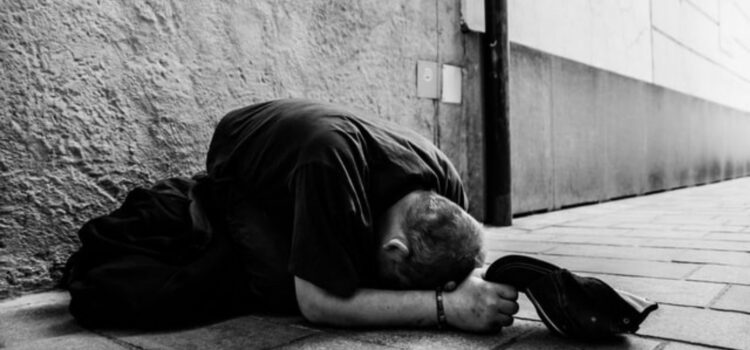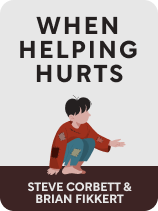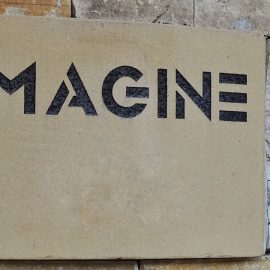

This article is an excerpt from the Shortform book guide to "When Helping Hurts" by Steve Corbett and Brian Fikkert. Shortform has the world's best summaries and analyses of books you should be reading.
Like this article? Sign up for a free trial here.
What are the main causes of poverty? How do your relationships affect your financial mindset?
Despite poverty’s complexity, Steve Corbett and Brian Fikkert (the authors of When Helping Hurts) argue that we can trace all of its components back to one source. This source is a breakdown of a person’s relationships with God, self, others, and the rest of creation.
Let’s look at how these four relationships can cause poverty, according to Corbett and Fikkert.
The Four Broken Relationships
What are the main causes of poverty? According to Corbett and Fikkert, when Adam and Eve disobeyed God, it damaged all humans’ relationships with Him, themselves, the people around them, and the rest of creation. As a result of these broken relationships, humans have developed a series of harmful worldviews, which make them poor by causing them to make poor decisions:
Negative view of God: Instead of serving and praising God, people may lack faith in Him, not believe in Him, or even believe in other gods. This may lead them to squander resources trying to curry the favor of false gods through offerings or expensive rituals.
And even if it doesn’t, it facilitates other negative worldviews: Without a correct view of God, people can’t readily form correct views of themselves, others, or their role in creation. They can’t understand themselves or each other without knowing God because God made humans in his own image. And they can’t understand their place in managing creation without knowing what role God gave them. As such, Corbett and Fikkert emphasize that teaching the Christian worldview (that is, a correct view of God) is crucial in liberating people from poverty.
Negative view of self: Instead of recognizing their inherent value and superiority to the rest of creation (for example, animals), they lack self-confidence and self-worth. This contributes to their sense of powerlessness and holds them back from pursuing the opportunities that are available to them.
Negative view of others: Instead of knowing, loving, and encouraging others to use their unique gifts, people become self-centered, treating others with hostility or indifference, and exploiting or manipulating them when given the opportunity. This contributes to their poverty by driving others away, making them feel more isolated, and exacerbating their powerlessness because they lack empowering social or professional connections.
Negative view of creation: Instead of managing, protecting, and engaging with the rest of creation, people disconnect from the world around them and in some cases believe that life is entirely outside of human control.
Background and Controversy on Broken Relationships
Corbett and Fikkert’s assertion that poverty results from the four relationships that were broken when Adam and Eve sinned isn’t so much an original idea as a specific application of the Christian doctrine that human suffering (including poverty) is ultimately the result of sin. Christian theology holds that when Adam and Eve sinned, their sin corrupted all of creation, making human suffering and death possible. Adam and Eve’s original sin was also passed down to their offspring as a propensity to commit more sin.
Consequently, sin can cause suffering in three ways: A person may suffer as a direct consequence of his own sins (for example, poverty caused by bad decisions or expensive idol worship). A person may also suffer as a consequence of someone else’s sin (for example, someone who’s poor because predatory lenders take all his money for exorbitant interest payments). And a person may suffer simply because of the collateral effects of Adam and Eve’s original sin on creation (for example, someone who’s poor because of an illness that prevents him from holding a job).
In Christian theology, sin is the problem—and the ultimate cause of all other problems—and Christ is the solution, because Chrcane to forgive sin. Thus, in a Christian context, the idea that mending your relationship with God by receiving God’s forgiveness is the first step to solving any problem, including poverty, is relatively intuitive and non-controversial.
But in a secular context, the idea that teaching people a Christian worldview (or “how to mend their relationship with God”) should be central to poverty alleviation is one of Corbett and Fikkert’s most controversial assertions. Some even make the opposite claim, asserting that a Christian worldview may perpetuate poverty by helping poor people find meaning in their suffering rather than seeking material solutions to their problems.
Nevertheless, even secular sources tend to agree that the other three relationships Corbett and Fikkert identify are important for overcoming poverty, or succeeding at anything for that matter. For example, in The Success Principles, motivational speaker and self-help author Jack Canfield emphasizes the importance of a positive self-image for achieving your goals, which corroborates Corbett and Fikkert’s concept of mending your relationship with yourself.
In Never Eat Alone, entrepreneur Keith Ferrazzi emphasizes the importance of building mutually beneficial relationships with other people to succeed in your career. And in The Compound Effect, Darren Hardy emphasizes the importance of taking control of your environment in order to be successful in your endeavors.
Broken Relationships Lead to Broken Systems
Furthermore, according to Corbett and Fikkert, humans’ broken relationships with God, self, each other, and creation result in broken social, political, economic, and religious systems, since these systems are made up of humans. Broken systems tend to reinforce negative worldviews, creating a vicious cycle. And the poor are the most vulnerable to this vicious cycle because they have the least influence over the systems under which they live.
For example, suppose a homeless man goes to a church looking for help. This particular church doesn’t know much about helping the homeless (a broken religious system), so they refer him to a government program that puts him in run-down public housing in an impoverished, crime-ridden neighborhood (a broken social and political system). From this experience, the homeless man infers that God doesn’t care about him (since the church just sent him to the government) and other people don’t care about him (since the government sent him to live in a hostile neighborhood). These conclusions further damage his views of God and other people.
(Shortform note: While Corbett and Fikkert acknowledge the influence of broken systems, their focus is primarily on poverty alleviation by churches, which don’t typically have much power over political or economic systems. Other books, such as Amartya Sen’s Development as Freedom, discuss the subject of poverty more from the point of view of systemic reform. Like Corbett and Fikkert, Sen identifies powerlessness as the essence of poverty. He suggests empowering the poor by guaranteeing them various political rights, including the right to participate in government, the right to engage in commerce, and the right to basic services like education and healthcare.)

———End of Preview———
Like what you just read? Read the rest of the world's best book summary and analysis of Steve Corbett and Brian Fikkert's "When Helping Hurts" at Shortform.
Here's what you'll find in our full When Helping Hurts summary:
- How many Christian church missions actually do more harm than good
- A look into the true nature and causes of poverty
- Suggestions for how to help the poor more effectively






